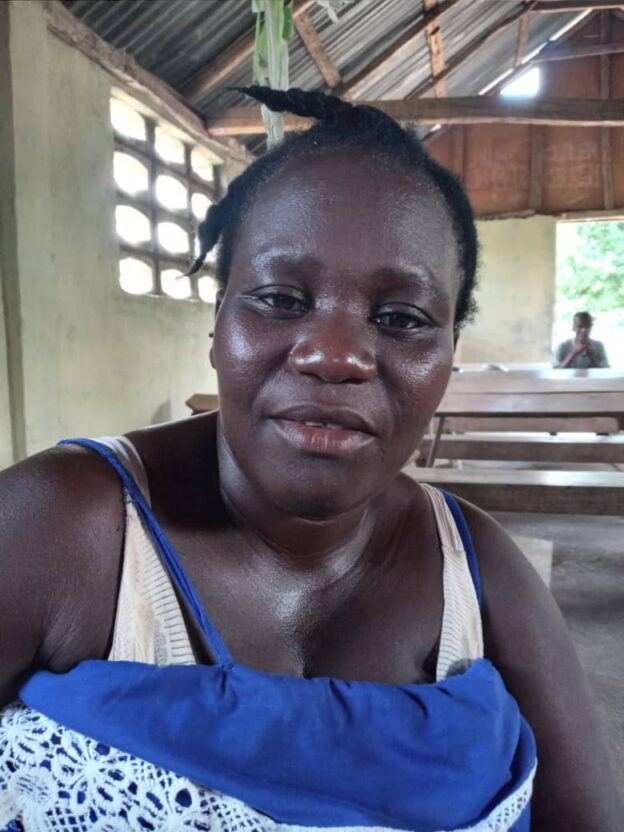Ketline lives with four of her children in Ba Kamas, a long ride on a secondary road through a corner of northern Gwomòn. She and her partner had seven children, but the man abandoned her and the children for another woman.
Ketline continued to support the children herself by doing laundry for families in downtown Gwomòn. She also sells candy out of a wooden box on legs, called a “bak” in Creole, in front of her home. It was enough to keep them fed most of the time, but there were days when they had nothing to eat. Her family eventually took three of the kids to live in Gwomòn. Ketline herself couldn’t afford to send them to school. “But I keep an eye on them. They are doing well.”
When members of CLM’s selection team started coming around, collecting information, Ketline didn’t know what to make of it. “I started asking myself a lot of questions.” She imagined that there must be a program involved, and she hoped it would help her. And though she hasn’t been in the program very long, she is already pleased by the progress that she’s made. “I already learned to write my name, and they’re teaching me how to manage what I have.”
She’s already bought herself a small pig out of savings from her weekly stipend. “It wasn’t enough to buy a sow, so I bought a young boar.” She plans to raise it until she can sell it to buy something more valuable. “I’ll buy a cow if I can, or a piece of land.”
She chose goats and small commerce as her two enterprises, and though she hasn’t received either yet, she is expecting them soon. She wants to start a business selling chicken meat. She can buy it frozen, by the case, at the market in Opoto and sell it in her neighborhood. She doesn’t plan to give up doing laundry, however. It’s hard work, but she likes the steady income.

